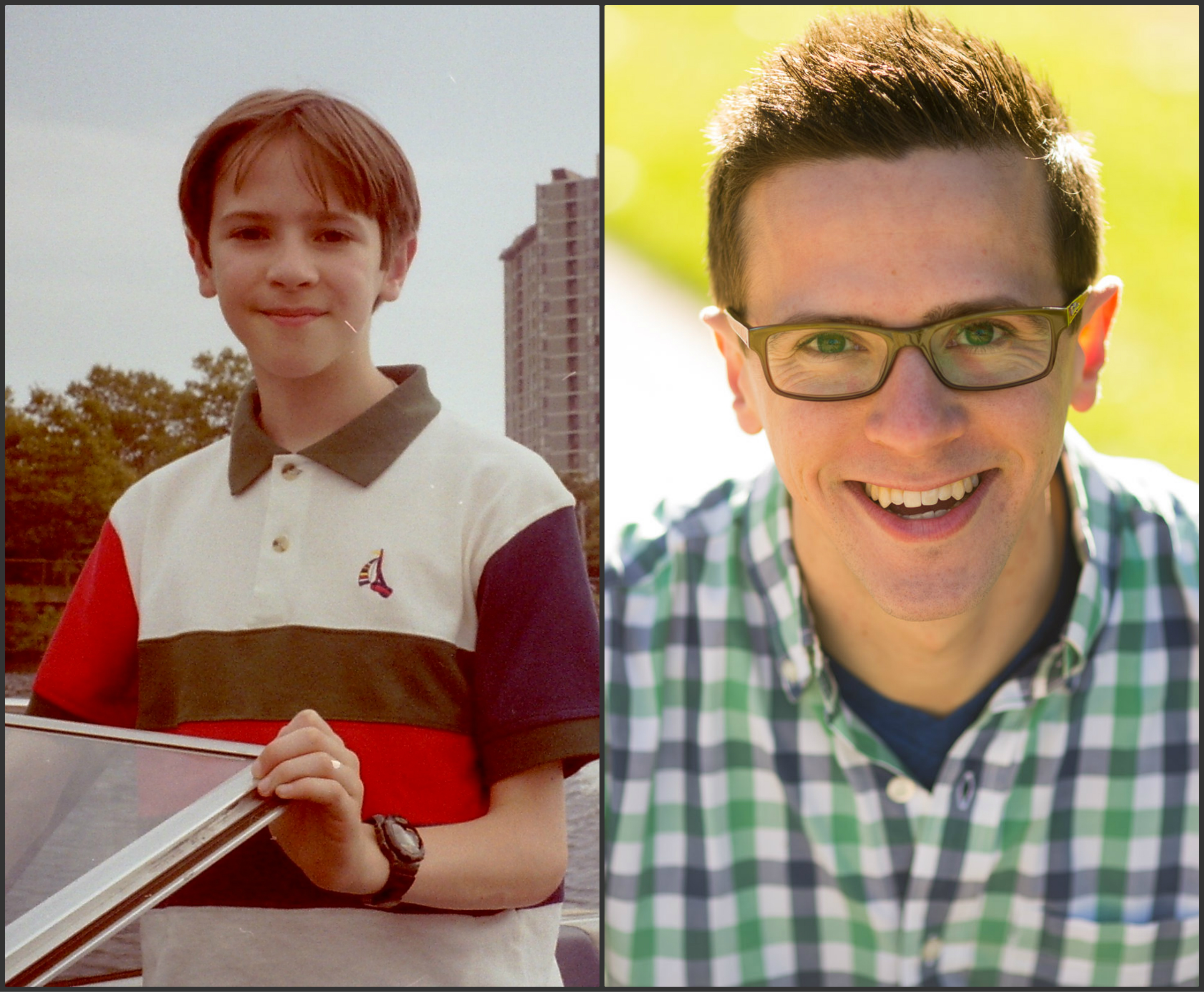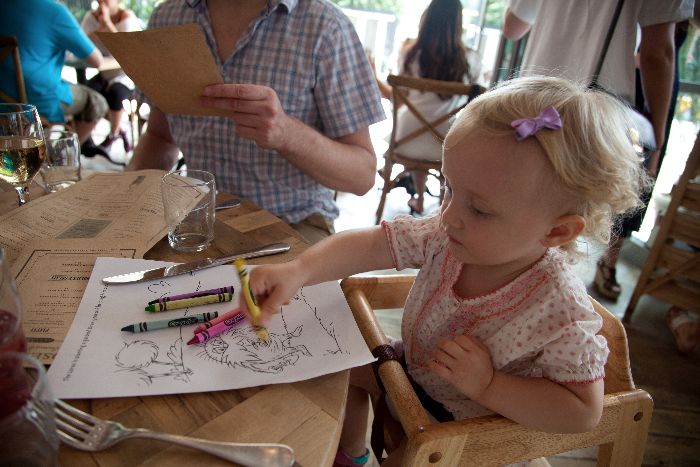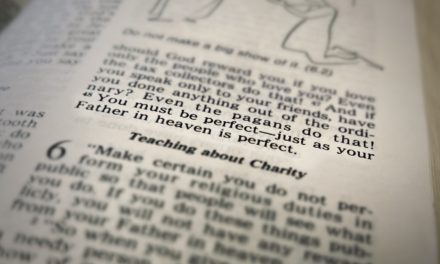This is part of a two-post mini series on the social and theological implications on the body. Listen to an audio version of this post here.
 I look young. I’ve always looked young and it’s always been a major insecurity for me. I remember when I was 13 I would get so frustrated if the host at a restaurant instinctively grabbed the kids’ menu and a box of crayons. “I don’t need crayons…” I’d say snootily. But as someone who’s 30 this is not always a helpful physical trait. A couple weeks ago someone asked if I moved to Chico for school. “No, my wife and I moved here for work,” I responded. There was an awkward silence. In the last two days I can count five people who’ve commented on my “youthful appearance”. They have a hard time believing I’m married, that I’m a high school teacher, that I myself graduated high school 13 years ago. Some will even be bold enough to tell me what age they think I look: 19, 18, 16? The kind ones say early 20s.
I look young. I’ve always looked young and it’s always been a major insecurity for me. I remember when I was 13 I would get so frustrated if the host at a restaurant instinctively grabbed the kids’ menu and a box of crayons. “I don’t need crayons…” I’d say snootily. But as someone who’s 30 this is not always a helpful physical trait. A couple weeks ago someone asked if I moved to Chico for school. “No, my wife and I moved here for work,” I responded. There was an awkward silence. In the last two days I can count five people who’ve commented on my “youthful appearance”. They have a hard time believing I’m married, that I’m a high school teacher, that I myself graduated high school 13 years ago. Some will even be bold enough to tell me what age they think I look: 19, 18, 16? The kind ones say early 20s.
Why does this bother me so much? As I was preparing to write this post I decided to Google the title I had chosen, “The Curse of Looking Young”. I only had to type the first four words and Google had filled in the rest. – People had searched for this before. Unfortunately the blog posts and rants I found were written only by women, probably because there’s so much more pressure on women’s appearance and age than there is on men. The most common curse citied by these other young-looking bloggers was the same as my own main grievance: not being taken seriously.
As a minister this can be a challenge. My time as a hospital chaplain magnified this for me. I’d enter patients’ rooms and introduce myself as the chaplain and every so often a person would immediately comment how I look “too young to be a chaplain.” One person even said I looked 12! How could I move forward and minister to this person? I never knew quite how to respond. Thank you? After this happened several times I brought it up to my supervisor as a major insecurity and a barrier to my ministry. He suggested that the next time someone said I looked 12 I ask them, “How does it feel to be ministered to by a 12 year old?” My supervisor’s suggestion turned the comment around – it wasn’t about how I looked but about the person’s own discomfort with age. Were they willing to put that aside and talk with me? Those who look a lot younger than they are say they have to work harder to be respected.

Kid President – And people love him!
Looking younger than I actually am, for many people, disqualifies me. I must be too young to be a chaplain, too young to be a teacher, too young to know certain challenges of life. So I find myself having to prove myself to these people – and this takes a lot of energy. I imagine that if the 12 year old Jesus were around today no one would believe he sat in the Temple that day teaching the rabbis. 12 year olds are simply not qualified to teach! I’m currently the age that Jesus began his public ministry. For Jesus, convincing people of his authority was hard enough. Just imagine if he had the curse of looking young! Christianity may never have caught on!
Discomfort around age
Many of the comments of disbelief about my age I believe comes from our societal discomfort about ageing. Practically everyone who makes a comment about my looking young responds by telling me that I’ll appreciate it when I’m older. I’m not alone in this experience:
If I had a dime for every time someone told me that I would appreciate my girlish looks when I got older, I probably wouldn’t have to work full-time. (“The Blessing And Curse Of Having A Baby Face“)
“You’ll enjoy it when you get older,” is the most unhelpful thing you can say to a young girl who wants to become an elegant, beautiful Lauren Bacall-esque woman. (“The Curse Of A Baby Face“)
Why do I need to look younger when I’m 60 or 70? It seems our culture tries extraordinarily hard to escape ageing, yet many older people I’ve spoken to tell me that, aside from medical issues, life gets better with age. I certainly find that with the wisdom and experience I’ve gained over the years means life is indeed better at 30 than it was at 20 or even 25. We ought to be comfortable with who we are and who God made us to be right now. I’m certainly comfortable with my age, but because younger people are not taken seriously and immediately dismissed as immature, I myself am unable to fully be comfortable with my “young looks”.
Those who don’t question my experience or vocation based on my looks make me feel respected. Most of my fellow colleagues who have taught for years, sometimes decades, have not commented on my appearance. As a result, I confidently feel like one of them, ready and equipped to teach. They’ve taken the time to get to know me. I’ve encountered people twice my age who (even when I was a hospital chaplain) don’t for a moment seem to doubt my competency or ability to listen compassionately. Some even ask for counsel on deep spiritual issues. They don’t care about my age. Instead they’re judging me on my compassion and my love.
Jesus himself said we would be judged on how we loved our neighbour, not by their physical appearance or a disability. Jesus accepted people as they were. He never judged someone on appearances. “Stop judging by external standards,” he said; “and judge by true standards” (John 7:24, GNT). God knows I do my best to “plus-sign” those who make it a point to comment on my appearance; Ignatius says to assume the person’s positive intentions. I do my best to accept who I am and how I look. Still, even as a man, it’s hard to shake it when I’m bombarded by a culture so obsessed with appearance. God, help us.
Related posts:
- 18 Struggles Of People Who Look Younger Than Their Age
- I Don’t Look My Age and It’s Starting to Get Awkward
Listen to an audio version of this post…
Music by Kevin MacLeod









Thanks, Andy. Great talk about aging in general. I love listening to your thoughts on all things. But this one is a good reminder to hold my tongue when my medical people are actually my former students and I doubt their knowledge and skills. Yikes!
Well, you look 30 to me! Just with boyish good looks. But I can see how people would make such comments to you and why they would bother you when you are trying to build a ministry. My husband looks young for his age, so he grew a beard when he took his first job. It helped immediately. Now he’s 45 and his skinny frame has filled out 20 pounds and he has wrinkles around his eyes and forehead. He is so very elegant and handsome, like a movie star to me!
In our culture people are often judged by their appearance. My nine year old granddaughter is tall so people expect her to act much older than her actual age; whereas, my six year old grandson is small for his age and people are amazed when he speaks and asks questions. We are who we are and we need to be allowed to be comfortable in our own skin but the journey to that point often takes a lifetime. Thank you for this reflection as I’m seventy (and I look younger) and so far I haven’t judged competence by age but this reminds me of how easily that can happen.
Thanks for reminding me to judge by true standards. I have a chronic illness. It takes me from my life for months at a time. Recently, it took me from my life for 4 years. My hope faded as did most of my friends. I judged myself harshly, believing I deserved the isolation, pain and all else illness brings, especially in a society that judges us by what we do rather than who we are. What if my illness wasn’t taking me from my life but is just part of my life, I pondered one day after prayer. I began to listen to God rather than to the my insecurities and fear. I found I had the time to begin spiritual practices I had sputtered with during short flares of illness then discarded when I found remission: Centering Prayer, Examen, Lectio and so much more. My illness is a gift, a teacher, my journey! Age does bring wisdom and a peace as does surrendering to God. We will still be pulled by the unimportant because we will still be human. Thanks for clearing my eyes to see that I am making progress, with God’s Help, to judge by true standards. Judging myself by true standards alllows me to judge others by those same standards.
And my husband grewca beard as a college freshman because no one thought he belonged on campus. I didn’t know him then but saw the hurt in his eyes when I saw his high school senior yearbook photo and thought it was his high school freshman photo. We have been married for 24 years and I have never seen him without a beard but as the commenter above, I see him with my heart and he is movie star handsome, brave, wise and true…and bearded!
May we all learn to judge by true standards and receive the grace to walk our own and very unique journey.
Thank you all for your thoughtful comments! It’s nice to know I’m not alone, but also that this has helped some take a step back and reassess their own initial biases or judgements.
Peace,
Andy
Remember Andy the blind man whom Jesus restored to sight did not know, or care what Jesus looked like. Nor does it matter what size shape ethnicity or age you are. God has a job for each and every one of us if only we would listen to Him. He will tell us what He wants us to do..
Oh thank you so much for writing this! I have struggled with this my whole life. I encounter the same disbelief as a professional counselor. I’m almost 40 but people think I’m a Gen Z- 20 something. Even a colleague of mine, who is about my age, thought I was younger.